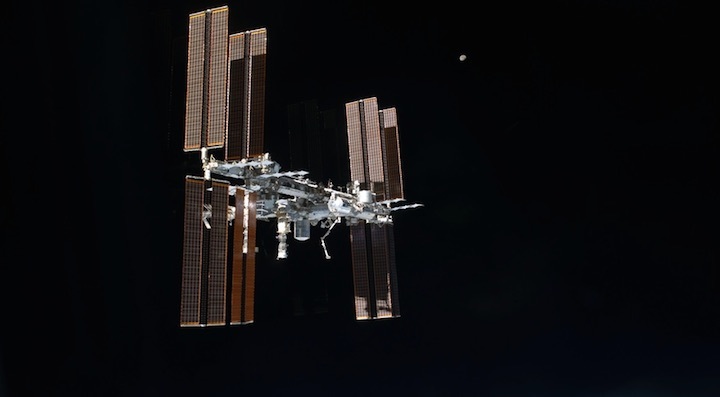26.09.2017
International partners in no rush regarding future of ISS

ADELAIDE, Australia — The partner space agencies of the International Space Station said Sept. 25 they have had discussions about the future of the station beyond 2024, but indicated no urgency in making a decision.
At a press conference during the 68th International Astronautical Congress here, NASA Acting Administrator Robert Lightfoot said he has talked with the other partners about both an extension of the ISS as well as cooperation on the agency’s proposed Deep Space Gateway, although no decisions on either were imminent.
“We’ve got a list of criteria that we’re putting together to say what would we do post-2024,” he said, referring to past studies that conclued it’s technically feasible to operate the ISS beyond that date. “This is something that we’ve talked about pretty consistently, whether it’s at our level of the heads of agencies or the level just below.”
Lightfoot added that discussions among the heads of agencies are planned for this week at the conference, but didn’t indicate a timeline for making a decision beyond noting that the European Space Agency didn’t formally commit to the extension of the ISS to 2024 until a ministerial meeting last December.
Igor Komarov, head of the Russian state space corporation Roscosmos, suggested that there would be the need for a research facility in low Earth orbit beyond 2024. “We need something in low Earth orbit,” he said. “It’s better to make research in LEO if its possible to make them there.”
Future research, though, could be done with a different approach that the current management of the ISS. “In the future, should it be a different structure, maybe less investment-consuming, more efficient?” he said. “The next generation shouldn’t be a copy of the existing one.”
Komarov, however, backed away from reports that Russia was considering separating its modules from the ISS to form a Russian space station after 2024, acknowledging that the technical feasibility of that has been studied. “We have no plans to separate the Russian segment from the ISS,” he said. “We keep the same position, that we should work on the ISS together with our partners.”
Naoki Okumura, president of the Japanese space agency JAXA, said consideration of the long-term future of the ISS was premature at this time. “We need to look at the reality today before we think about the future that’s too far away,” he said through an interpreter. “By 2024, we need to make sure to generate as many results as possible from ISS-related missions.”
However, he said JAXA was in discussions with NASA about a potential role on the Deep Space Gateway facility in cislunar space. “JAXA is now making a serious deliberation as to what JAXA can do if we join the Deep Space Gateway and how we can support that,” he said. “We are in the middle of those discussions.”
Lightfoot cautioned that the Deep Space Gateway remained just a concept at this time, without the former endorsement of the project by the administration or Congress. “We shared that with our international partners,” he said, starting with discussions in April at the Space Symposium in Colorado Springs.
At a panel discussion later in the day at the conference, executives with Boeing and RSC Energia endorsed continued work on the ISS as well as development of the Deep Space Gateway concept.
“I think that it’s really important that, when you look at the transition of the International Space Station, we look at some lessons learned from shuttle and don’t repeat those,” said John Elbon, vice president and general manager of space exploration at Boeing. That means, he said, “we don’t set an arbitrary date to retire the station before there’s another low Earth orbit destination that can fill the requirements of the space station.”
Quelle: SN
